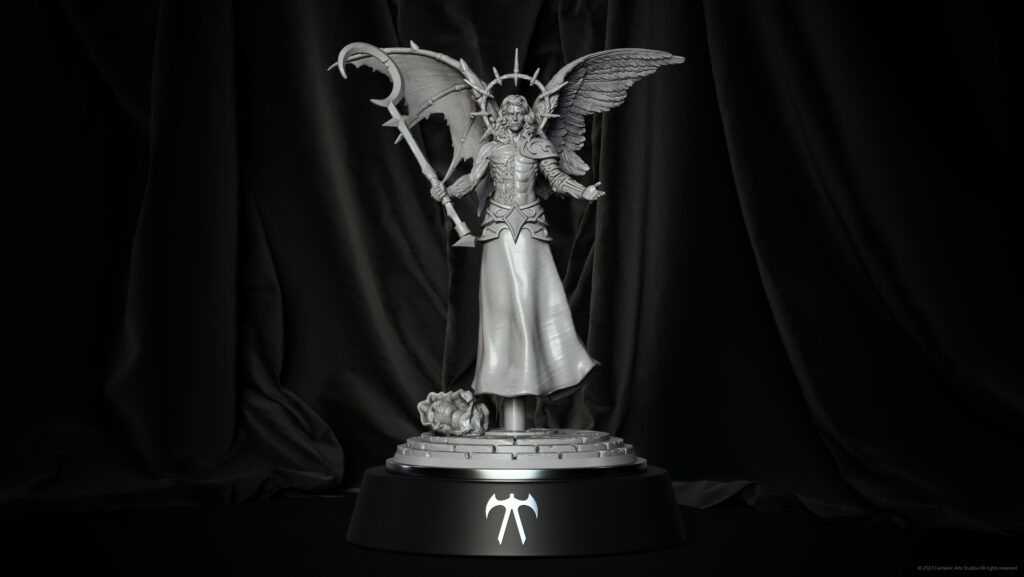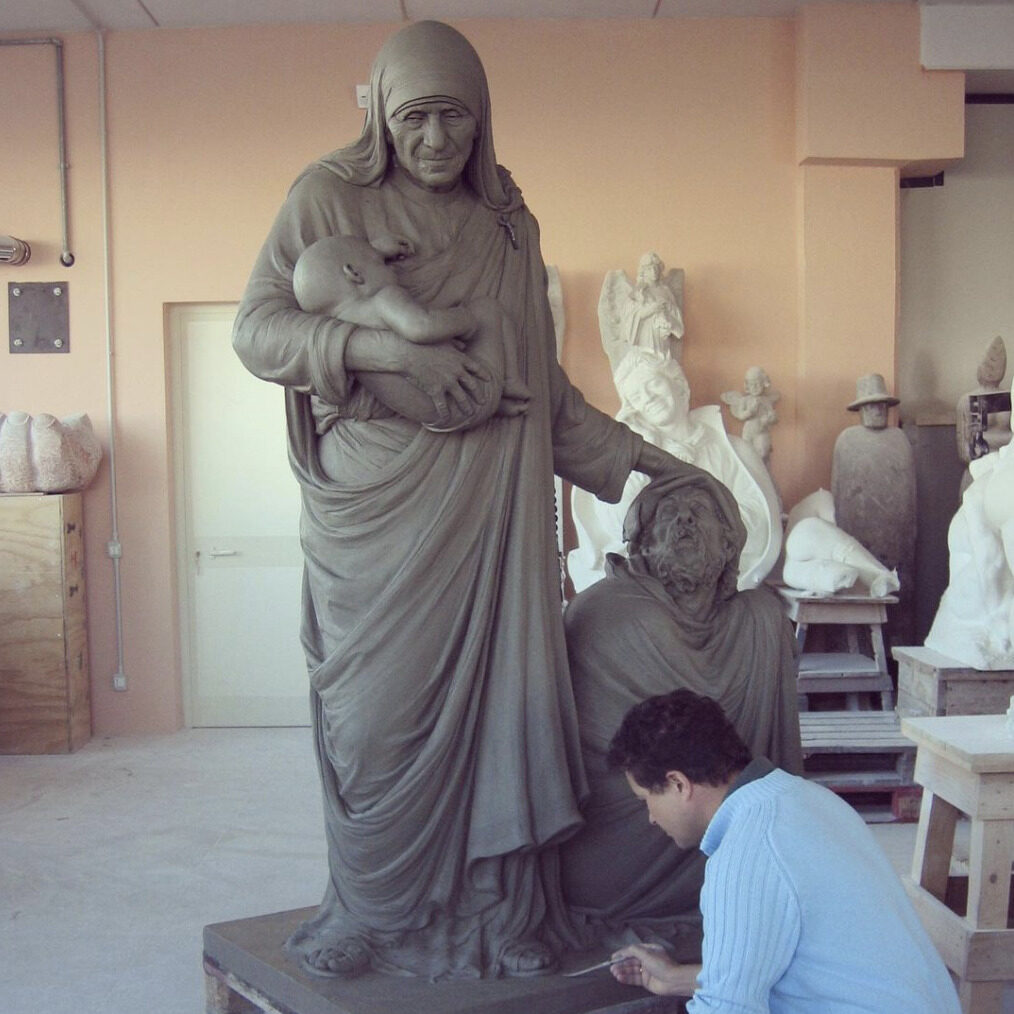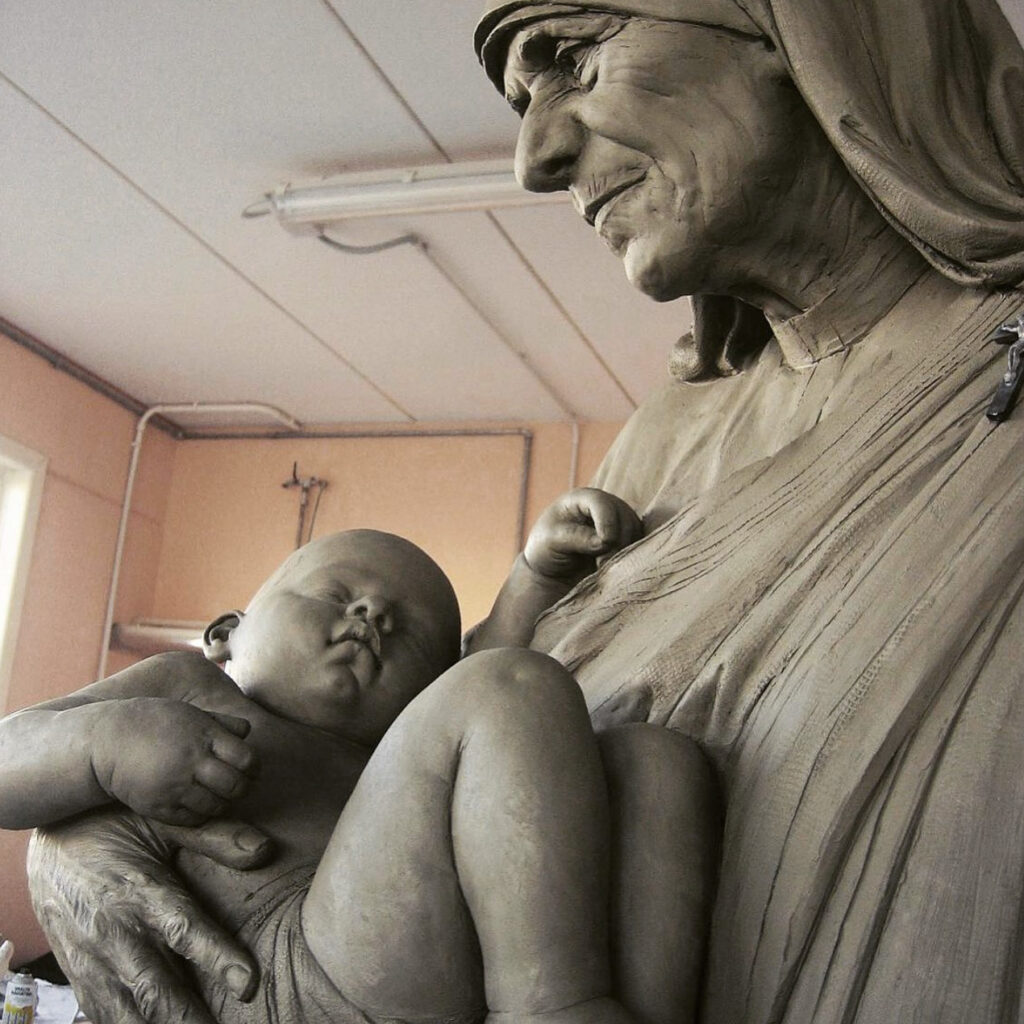SIGN UP FOR A
FREE BARBARIAN
STL FILE
Join our community and get your FREE ready-to-print STL FILE of the Barbarian, a Fantastic Art Studios Miniature signed by renowned sculptor Alex Oliver.

“The Studio’s going to be a place of learning and international integration for sculptors from all over the world!” Cicero exclaims. He’s talking about the sculpting school in Tuscany he’s been working on, his nearest and dearest current project. That’s how we start; with the same passion, artistry and personality that infuses all his works.
“Art is the free expression of the soul at its most innocent and sincere”, Cicero states. “Take the Fallen Angel, the piece I’ve crafted for Fantastic Art Studios. It has a delicacy that contrasts with the brutality of its form. Every feather was modeled by hand”.
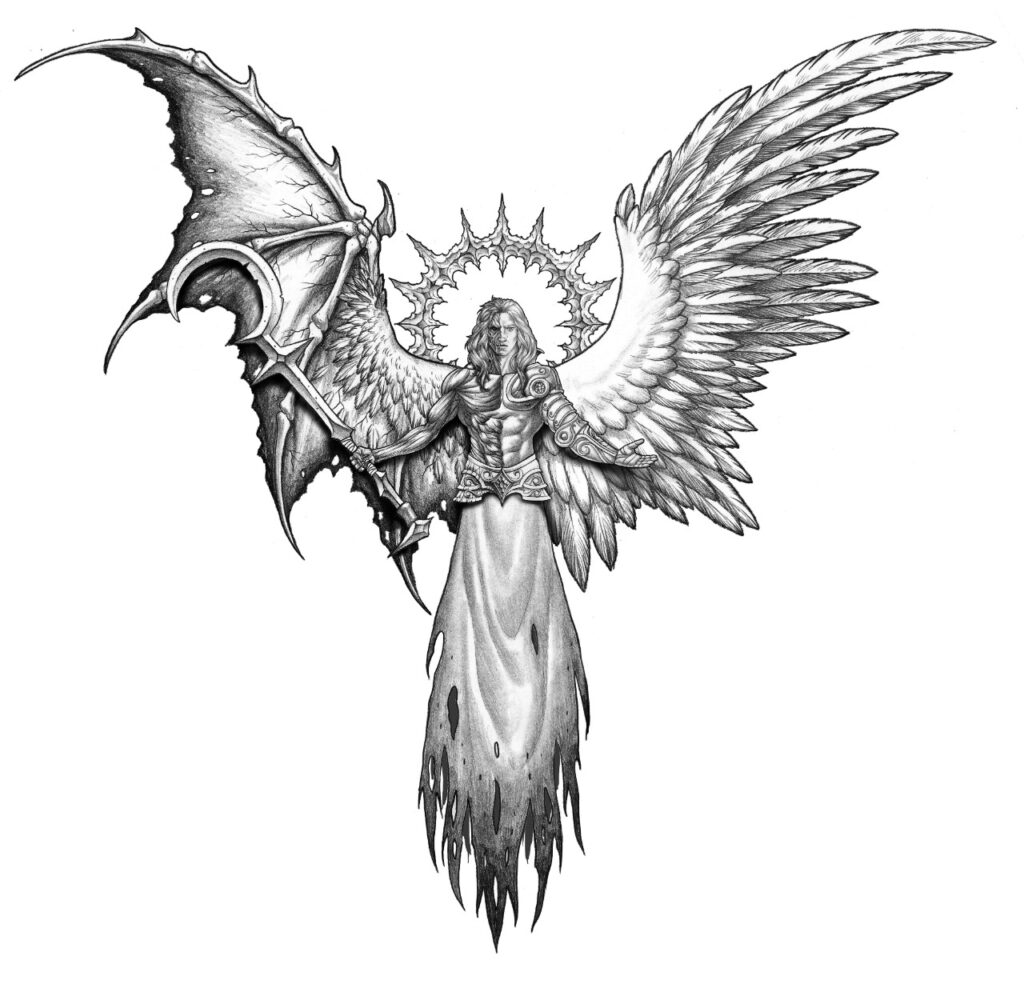
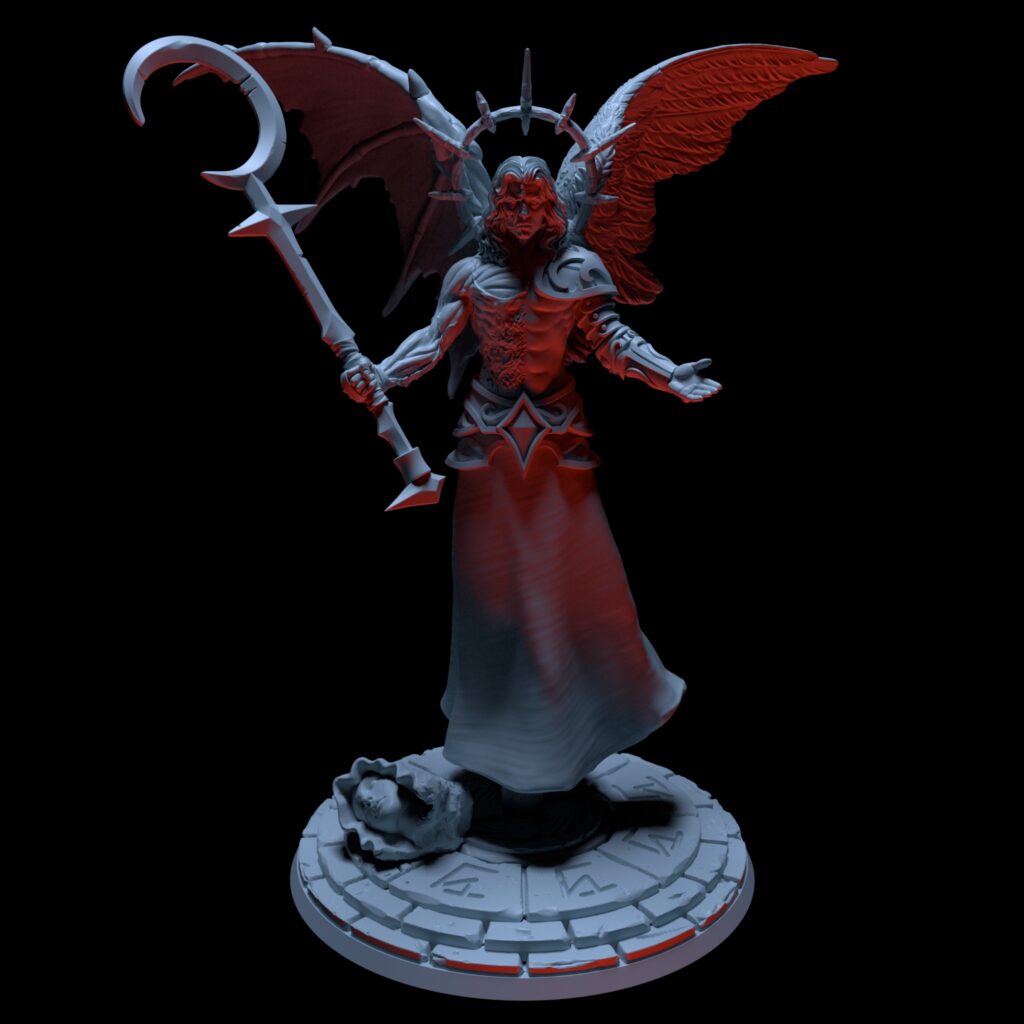
When asked about the experience of creating his first D&D miniature, he muses for a moment. “Creating with a market reference was a challenge. I felt the urge to express my origins, my vision. At the same time, I wanted to meet and surpass industry standards”. He concludes, vividly describing The Fallen Angel, Fantastic Art Studio’s First collection flagship RPG fine art miniature, as if it was still under his expert eyes and hands:
“When I felt I had a throughline of reality, of artistic coherence and congruence, when it felt true, I knew I had something. An artist’s work must have personality.”
The concept of the Fallen Angel is a powerful narrative rich in symbolism and layered with artistic, social, and cultural interpretations. Duality emerges as a central theme: purity and rebellion, faith and reason, spirituality and materialism, strength and ruin, good and evil. “Paradise Lost”, written by English poet John Milton and published in 1667, and “Fallen Angel”, painted by French artist Alexandre Cabanel in 1847, are two masterpieces on this subject.
The Fallen Angel fine art miniature remains a fan favorite and holds a special place in the hearts of the team at Fantastic Art Studios. The RPG miniature is reimagined through a striking new interpretation by Cicero D’Avila, and by the fans who will proudly feature this unique piece in their collections.
Showered with compliments about his statue, Cicero expresses an artist’s gratitude: “I’ve learned everything working at the marble workshops, and by studying the art of the great masters, in museums and galleries. All answers lay there, waiting to be found. They spoke to me, as they’ll speak to you”.
Cicero was intrigued by sculpture as a medium quite early. He was 13 when he became fascinated by a talented local wood sculptor, Mr. Milton, in his hometown of Rancharia, São Paulo, Brazil. “I would go to someone’s house and appreciate a work of art, or I’d see a monument in City Hall that caught my eye, and it was always his.”
“Eventually, I had the courage to put myself in front of the man and ask to be apprenticed, as many kids did at the time. He granted my wish, and opened his doors. I remember the first time I saw him sitting at his easel, whittling. The smell of wood, the tools…”
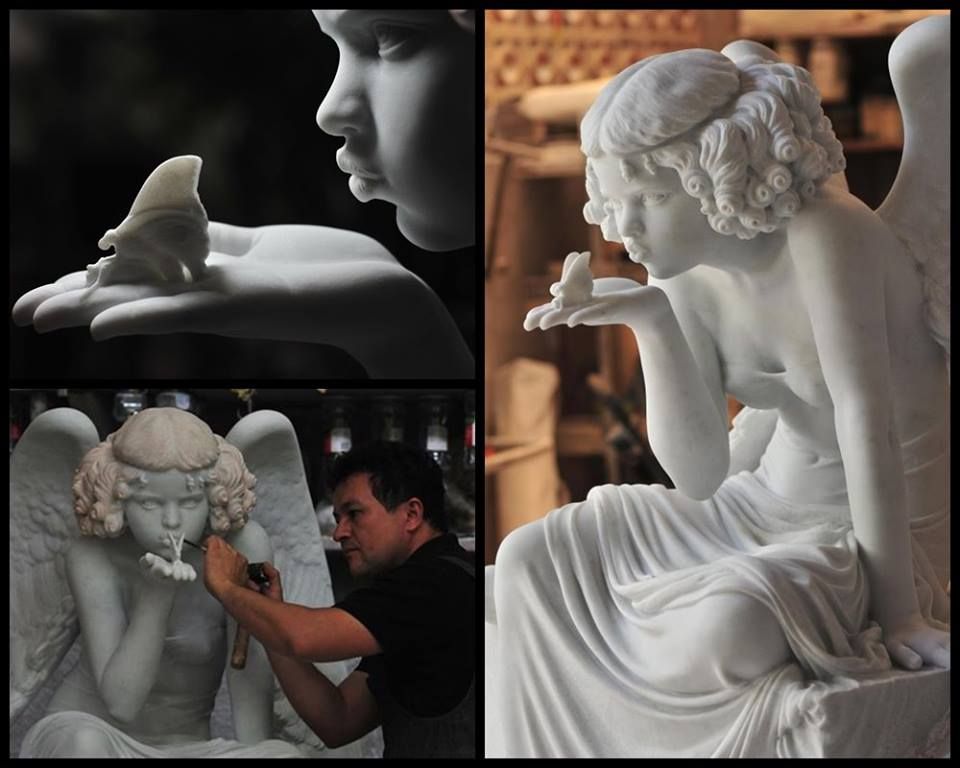
Then Cicero learned the craft daily, right after school, come hell or high water. That’s where a lifelong devotion to studying sculpture began.
From woodworking to becoming a portrait artist in a local foundry in São Paulo, his talent and passion fueled one another, and took him far. “I was traveling to Europe with some friends, and yearned to visit Pietro Tacca, a Marble School in Carrara, Italy. There, they ended up mentioning their need for good portraitists. Almost on a dare, they asked me to make a portrait of the school’s principal. It took me 4 days, a picture of him and a slab of clay. Afterwards, the principal himself insisted I stayed with them. He even took me in, too, so I could get settled in as a foreigner. He simply insisted I had to be there”.
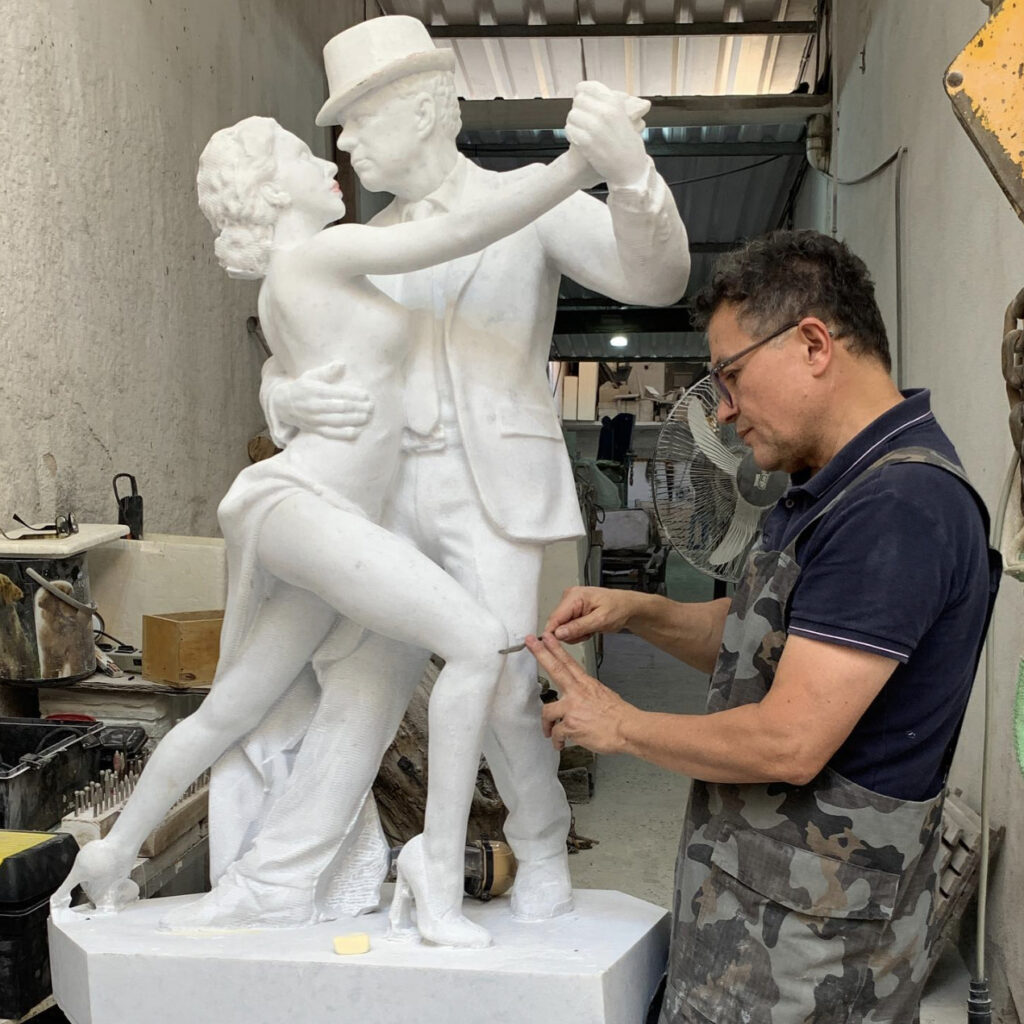

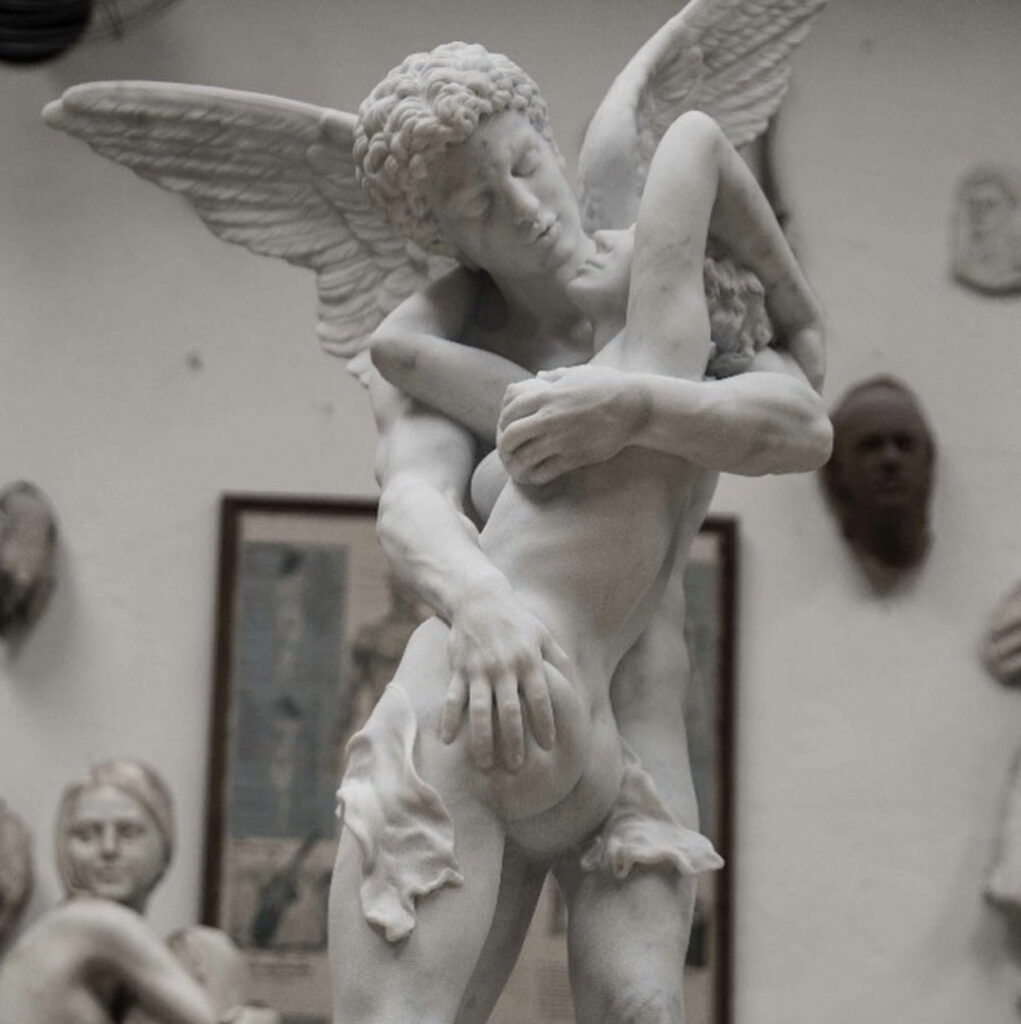
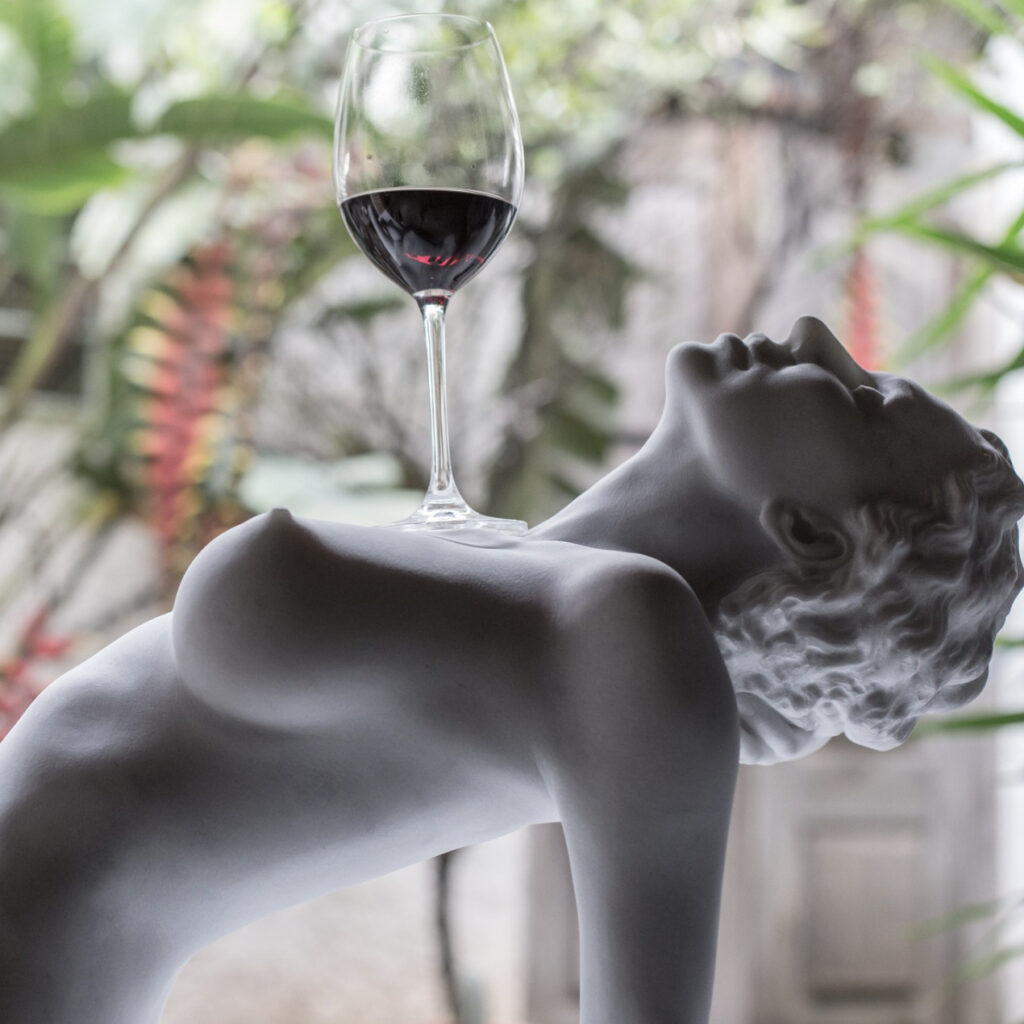
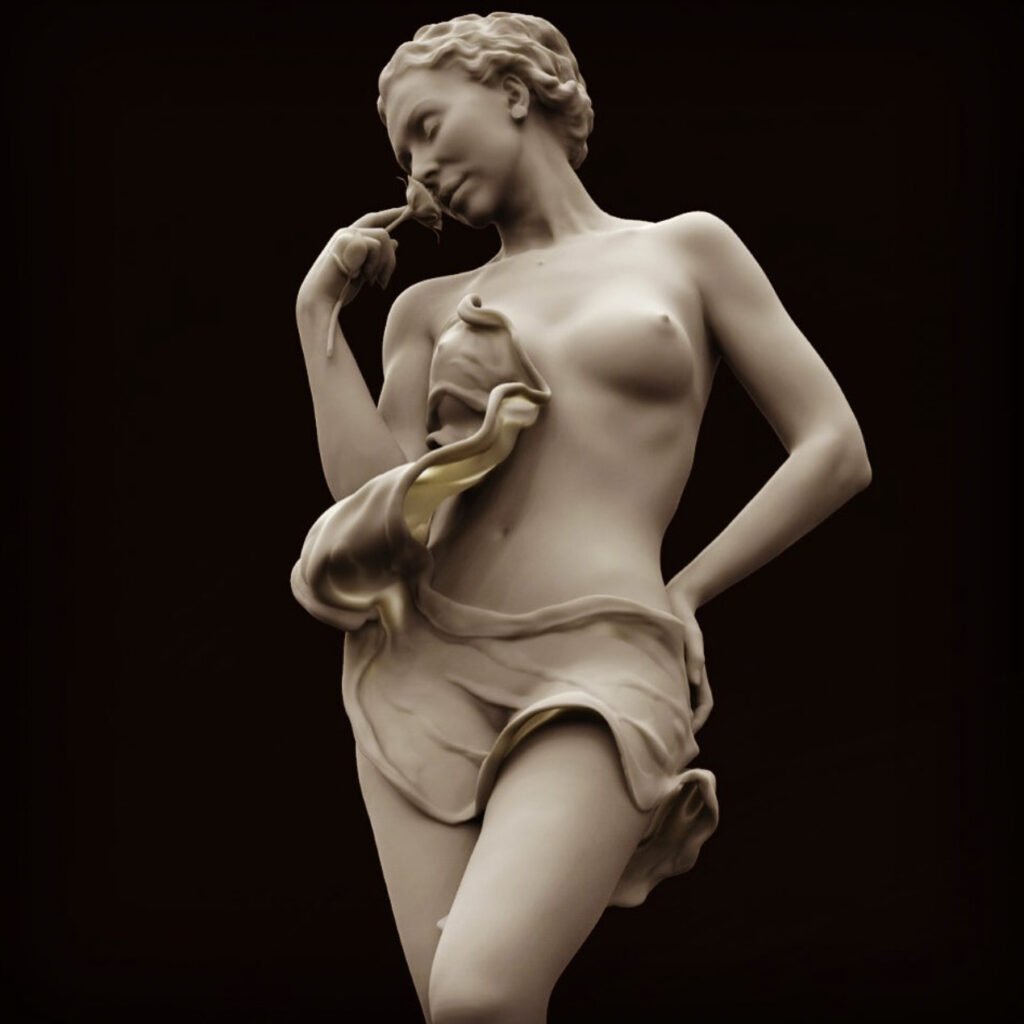
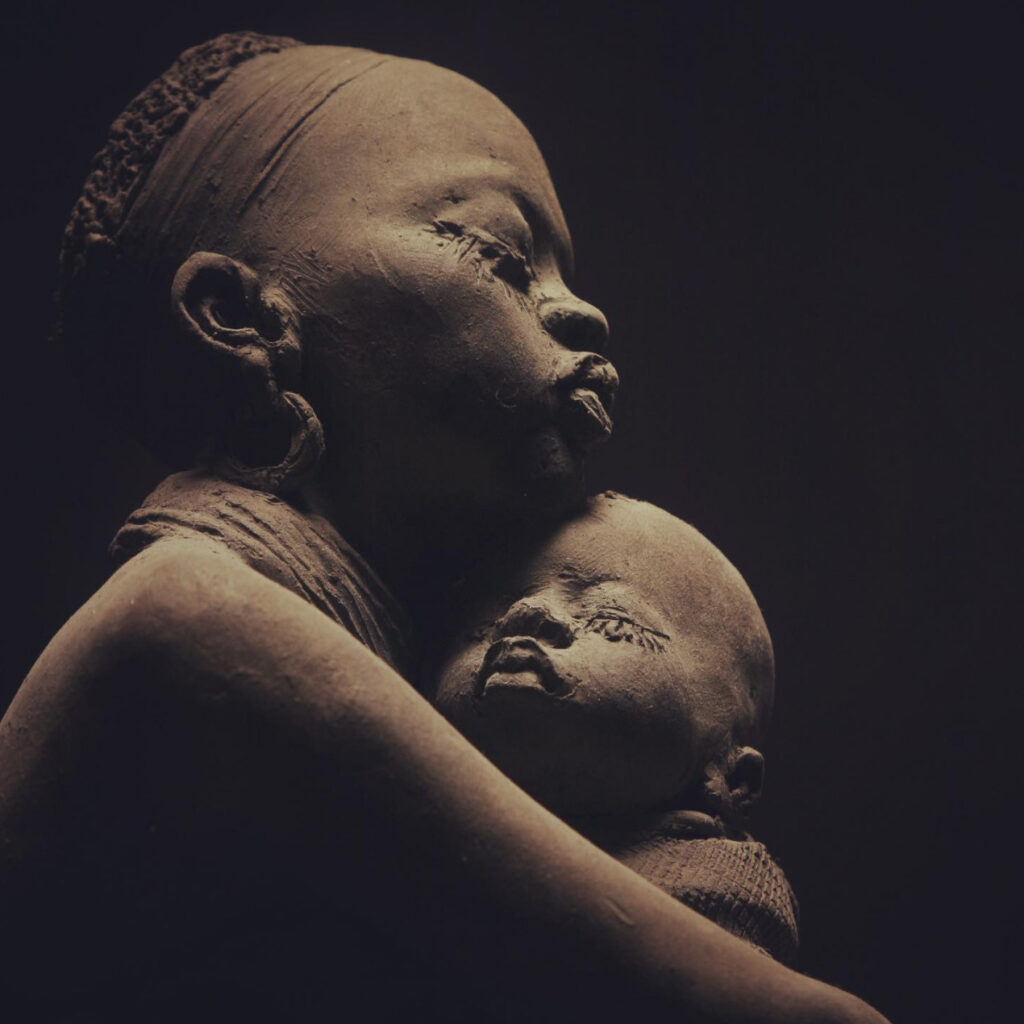
Top row, from left to right: Tango (marble), Nishimura (bronze), and Eros n Bonnie (marble).
Bottom row, from left to right: Eruption (marble), Profumo (marble), and Black Pearl (bronze).
Fine art sculptures in marble and bronze by world-renowned sculptor Cícero D’Avila. Photo courtesy of Cicero D’Avila.
Cicero and his creation, the Fallen Angel, invite us to let a bit of this appreciation of art into our games and our minds. As dreams and plans for future collaborations take hold of the conversation, it’s clear that the Fallen Angel and its creator perfectly embody the values of Fantastic Art Studios — fine art infused with meaning, aimed at building a cultural and artistic legacy, and celebrating the fantastical within and around us.
Working in Italy allowed Cicero to truly connect with his voice and public as an artist. His skill with marble and clear artistic vision made him well-known among patrons that sought his expertise, and allowed him to travel all over the world with his art. “Opportunity came to me like a saddled horse, and I jumped on it in a heartbeat”, he depicts with remarkable modesty, referring to the sculpture project of Mother Teresa created at the Cervietti Marble Studio in Pietrasanta, Italy. The final marble statue stands in The Basilica of the National Shrine of the Immaculate Conception, in Washington D.C.
